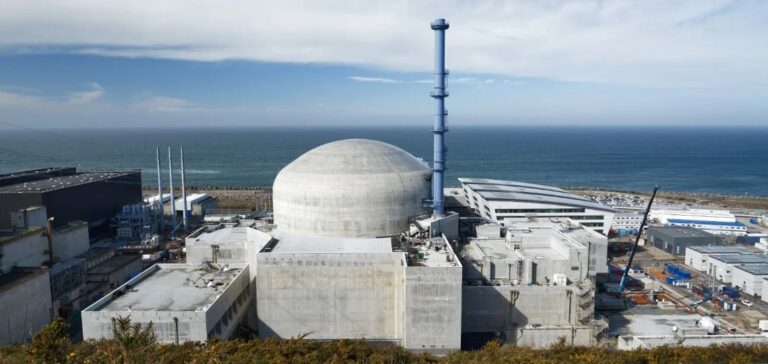The state-owned group Électricité de France (EDF) confirmed that the restart of the Flamanville EPR (European Pressurised Reactor) nuclear reactor, initially scheduled for April 12, has been postponed again. This decision follows the identification of new maintenance requirements on equipment located within the nuclear part of the facility. EDF stated that these interventions are essential to ensure the reactor’s power ramp-up is conducted under safety conditions in compliance with regulatory standards.
A controlled power ramp-up process
According to information published on the company’s official website, the ongoing shutdown is now extended until April 17, a date subject to revision depending on technical developments. The EPR reactor, with a nominal capacity of 1,650 megawatts, had been shut down on February 15. Since then, several postponements of the restart date have occurred. EDF reminded that the initial startup of a nuclear reactor is a complex sequence, marked by successive phases of testing, monitoring and verification.
Technical constraints and recurring delays
The group emphasised that adjustments during testing phases may result in changes to the schedule for reconnecting to the national power grid. Sources quoted by La Tribune reported that technical issues with the turbogenerator may limit the reactor’s ability to deliver full power output without major intervention. This operation would notably require the installation of scaffolding in a particularly hard-to-access area.
The Flamanville EPR reactor, located in the Manche department, was first connected to the power grid on December 21, 2024, after a delay of 12 years. Since its connection, two scheduled maintenance shutdowns have already taken place. EDF had warned from the outset that the ramp-up of this 57th reactor in the French fleet would require around ten technical interventions, including some unforeseen ones.






















